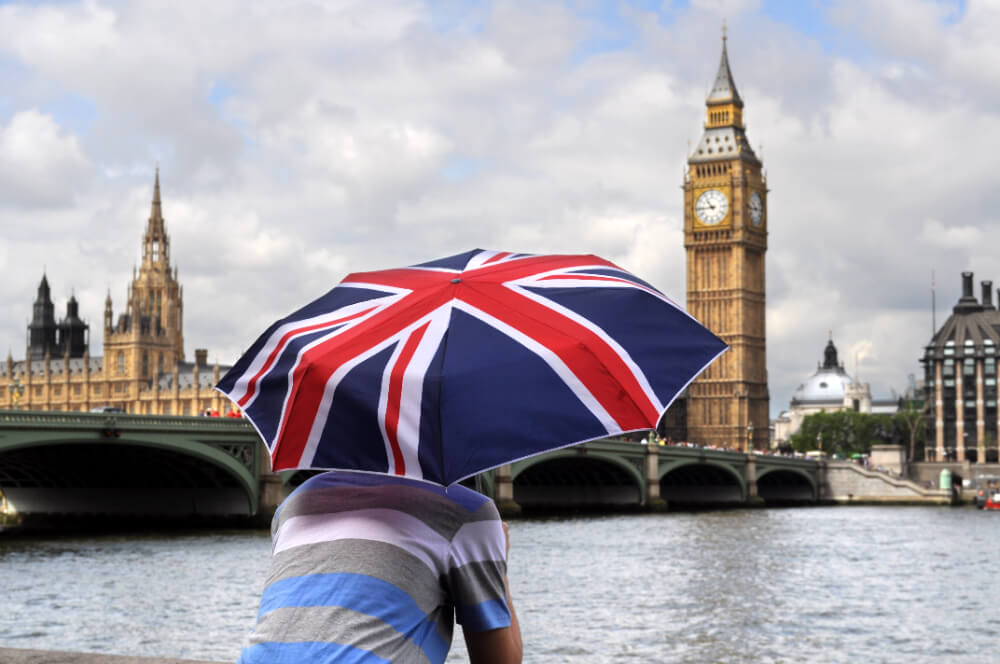When we think about England democracy contributions today, it’s easy to imagine elections, the protection of individual rights, and a government that listens to the people. But these principles didn’t emerge overnight, nor did they develop in isolation.
One country in particular, England, played a crucial role in shaping the democratic ideals we hold dear today.
From the signing of the Magna Carta in 1215 to the development of a parliamentary system that became a model for countries around the world, England’s political evolution had a profound impact on the establishment of democratic principles.
In this guide, we’ll take a deep dive into England’s key contributions to global democratic ideals.
We’ll answer common questions about England’s role in democracy, explain how these contributions influenced the world, and use relatable stories to bring history to life.
Let’s embark on a journey through England’s democratic legacy!
Common Questions and Concerns
Why is England considered a founding influence of modern democracy?
England’s legal and political innovations laid the foundation for many democratic principles, such as the rule of law, the protection of individual rights, and representative government.
Over centuries of political struggles, people gradually refined these principles, leading to a system of governance that emphasizes accountability, fairness, and justice
Without England’s contributions, modern democracy as we know it may not have evolved in the same way.
What are the major England democracy contributions?
- Magna Carta (1215): A pivotal document that limited the king’s power and set the stage for the development of constitutional law.
- Parliamentary System: England’s evolution of the parliamentary system provided a model for representative democracy, allowing citizens to have a voice in government decisions.
- The English Bill of Rights (1689): A foundational document protecting individual rights and limiting the powers of the monarchy, laying the groundwork for constitutional monarchies and democratic republics.
How did England’s democratic principles influence the world?
Countries around the globe have adopted and adapted England’s democratic contributions and ideas.
Countries like the United States, Canada, and India have drawn heavily on England’s constitutional principles to craft their own systems of government.
England’s early experiments with constitutional governance helped set the standard for modern political systems.

Why should I care about England democracy contributions?
Understanding how England’s democratic contributions shaped the modern world gives us a deeper appreciation for the political systems we enjoy today.
It’s important to recognize the struggles and compromises that led to the freedoms we often take for granted.
By learning about England’s influence on democracy, we can better understand the foundations of our own political systems and work to protect them.
England Democracy Contributions
Magna Carta: The Foundation of the Rule of Law
In 1215, King John of England faced a rebellion from his barons, who were unhappy with his heavy-handed rule.
After the king was forced to sign the Magna Carta, he conceded certain rights and liberties to his subjects.
Although the Magna Carta initially aimed to address specific grievances related to feudalism and taxation, it established several enduring principles that have shaped modern democracy.
Key Clauses of the Magna Carta:
- No taxation without representation: This clause emphasized that taxes could not be imposed without the consent of the kingdom’s representatives. It laid the groundwork for the modern concept of no taxation without representation, a key idea in democratic societies.
- Due process of law: The Magna Carta stipulated that no free man could be imprisoned or stripped of his rights without a fair trial. This idea has had a lasting influence on the legal systems of many countries, particularly in the United States, where it’s enshrined in the Fifth and Fourteenth Amendments of the Constitution.
- Limits on the king’s power: The Magna Carta made it clear that the king was not above the law. This concept of a monarch bound by laws was groundbreaking at the time and provided the basis for constitutional limits on government power.
Real-World Example: Imagine living in medieval England, where the king could arbitrarily imprison or tax people without any accountability.
The Magna Carta offered a promise of fairness, giving the common people a voice and ensuring that the monarchy was not an absolute power.
This idea still resonates today, as individuals have rights that the state must respect.
The Development of the English Parliament: The Rise of Representative Government
The English Parliament evolved from early medieval councils into a powerful legislative body that has influenced the development of representative democracy worldwide.
Over time, the Parliament expanded its role, moving from an advisory body to a true legislative authority that balanced the power of the monarchy.
Early Parliament: The Seeds of Representative Government
In the 13th century, King Edward I summoned what became known as the “Model Parliament,” which included both nobles and commoners.
This assembly set the precedent for representative democracy, as commoners were given a voice in government affairs for the first time.
Over time, Parliament became increasingly important, especially with the development of two houses: the House of Commons (representing the people) and the House of Lords (representing the aristocracy).
The Glorious Revolution and the Power of Parliament
The Glorious Revolution of 1688 was a defining moment in English democracy.
It resulted in the overthrow of King James II and the ascension of William and Mary to the throne.
As part of the settlement, the English Bill of Rights (1689) was enacted, which limited the powers of the monarchy and further strengthened Parliament’s role in governing.
Key Developments:
- Checks and balances: The English Parliament set the stage for the development of checks and balances, a system that ensures no single branch of government holds too much power.
- Regular elections: The English Parliament also established the principle that government officials must be regularly elected, providing citizens with a way to remove those who abuse their power.
Real-World Example: Think about the last time you voted in an election. The English Parliament, with its evolving role, helped shape the democratic systems in which we elect representatives to make decisions on our behalf.
Without the early models set by England, representative democracy may not have developed in the way it has today.
The English Bill of Rights: Protecting Individual Freedoms
After the Glorious Revolution, the English Bill of Rights was introduced in 1689.
This landmark document protected individual freedoms and limited the power of the monarchy, marking a significant step in the evolution of constitutional law.
Many of its provisions directly influenced the drafting of democratic constitutions, including the United States Bill of Rights.
Key Provisions of the English Bill of Rights:
- Freedom of speech in Parliament: This provision allowed members of Parliament to speak freely without fear of retribution from the monarchy, setting a precedent for free speech in democratic systems.
- The right to petition: The Bill of Rights affirmed the right of individuals to petition the government for redress of grievances, a fundamental right in democratic societies.
- Protection against cruel and unusual punishment: This clause was a precursor to the Eighth Amendment of the U.S. Constitution, which prohibits cruel and unusual punishment.
Real-World Example: Consider how the freedom to express opinions and petition your government are essential in today’s world.
The principles outlined in the English Bill of Rights are still in effect today, and many countries have adopted similar measures to protect individual rights and ensure government accountability.
The Global Influence of England’s Democratic Ideals
The United States
One of the most significant ways England’s democratic contributions influenced the world was through the formation of the United States.
The U.S. Constitution, particularly the Bill of Rights, was heavily inspired by English legal traditions, including the Magna Carta and the English Bill of Rights.
The idea that the government must respect the rights of individuals and that people should have a voice in their government directly stems from England’s early democratic reforms.
Example: The U.S. Constitution’s Preamble echoes the English tradition of popular sovereignty, beginning with “We the People,” reflecting the belief that government derives its power from the consent of the governed—an idea championed in England centuries earlier.
The Commonwealth Nations
Countries such as Canada, Australia, and India were also influenced by England’s democratic principles.
These countries have adopted systems of government that mirror the English parliamentary model, where elected representatives make decisions on behalf of the people.
Additionally, many Commonwealth nations have legal systems based on English common law, further embedding England’s democratic ideals into their own political frameworks.
Conclusion
England democracy contributions to global ideals are both profound and enduring.
From the signing of the Magna Carta to the evolution of the English Parliament and the enactment of the English Bill of Rights, England set the stage for modern democratic governance.
These milestones have influenced not only England’s political system but also those of many other nations around the world.
As we reflect on England’s democratic legacy, we can better appreciate the freedoms and rights we enjoy today.
By understanding these historical moments, we gain a deeper understanding of how democracy has evolved and the importance of continuing to protect these rights for future generations.
Frequently Asked Questions
How has the UK positioned itself as a global force for democracy?
The UK has taken bold steps to position itself as a global force for England democracy contributions.
This includes:
- Speaking out against authoritarian actions, such as condemning China’s National Security Law in Hong Kong
- Granting residency rights to millions of Hong Kong citizens with BNO passports
- Co-founding initiatives like the Open Government Partnership and Media Freedom Coalition to promote democratic standards globally
What role does the UK play in supporting democracy internationally?
The UK has taken a leadership role in supporting democratic governance worldwide through:
- Providing £1.37 billion in aid between 2015-2021 for democratic participation, elections, human rights, and related areas
- Combining aid programming with diplomatic interventions for greater effectiveness
- Coordinating efforts with other governments to enhance impact on democracy and human rights issues
How does the UK promote democratic values through its foreign policy?
The UK promotes democratic values in its foreign policy by:
- Placing governance at the center of its approach to foreign policy, development, and national security
- Shifting focus from “good governance” to explicitly supporting democratic governance
- Using its influence in international bodies like the UN Human Rights Council to advance democracy and human rights
What are some key British democratic values that have global influence?
Fundamental British values that underpin citizenship and have global influence include:
- Democracy and joint decision-making
- Rule of law and respect for legislation
- Individual liberty and protection of rights
- Respect and tolerance for diverse beliefs and cultures
How does the UK balance promoting democracy abroad with domestic challenges?
The UK faces the challenge of maintaining consistency between its global democracy promotion efforts and its domestic democratic practices.
To be credible internationally, the UK must:
- Ensure its own democratic institutions remain strong
- Address any domestic democratic shortcomings
- Lead by example in upholding the democratic values it promotes abroad



